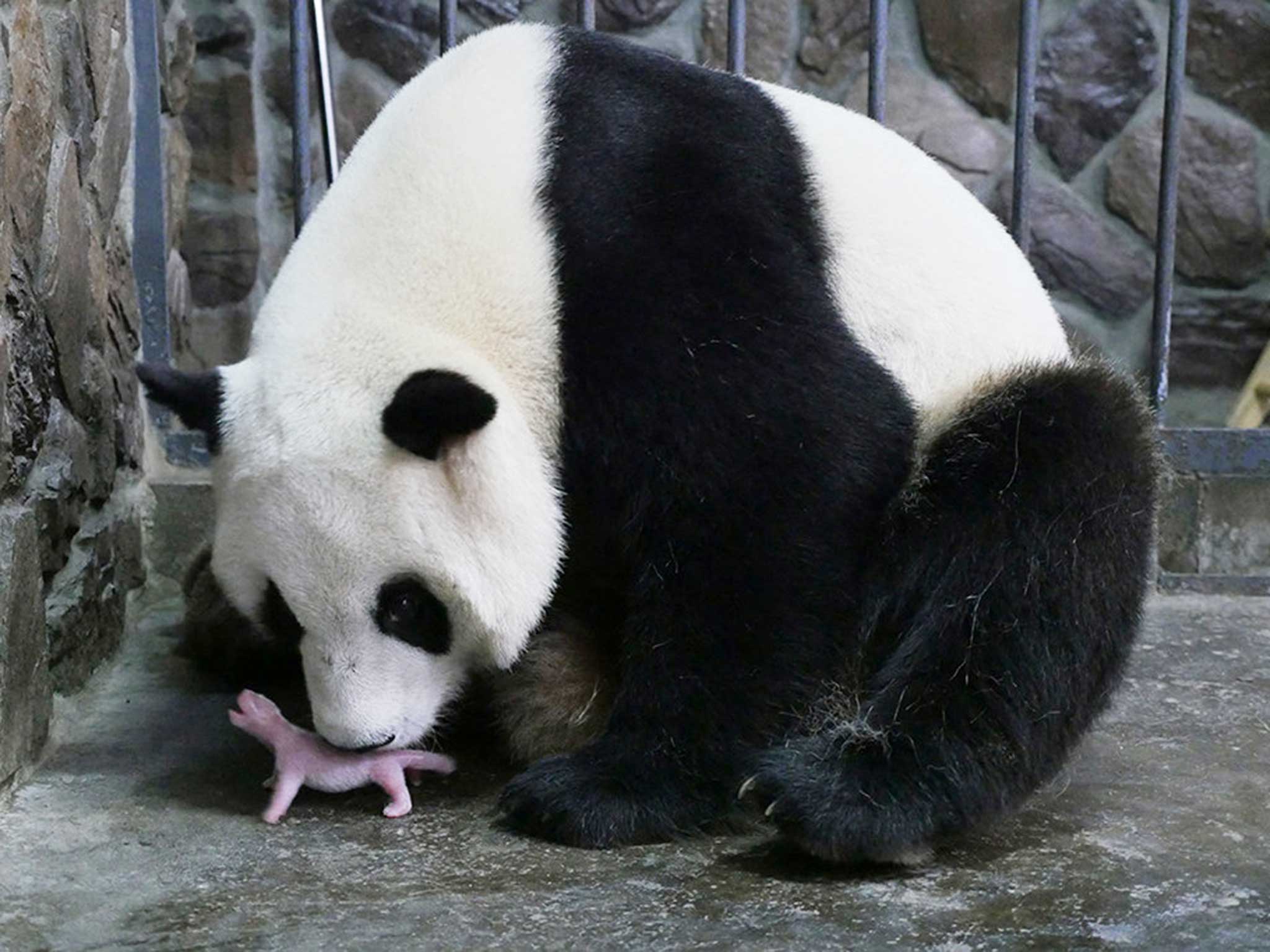Rare giant baby panda born in Belgian zoo hailed as 'true miracle'
The cub is hairless, blind and weighs just 171 grams
Your support helps us to tell the story
From reproductive rights to climate change to Big Tech, The Independent is on the ground when the story is developing. Whether it's investigating the financials of Elon Musk's pro-Trump PAC or producing our latest documentary, 'The A Word', which shines a light on the American women fighting for reproductive rights, we know how important it is to parse out the facts from the messaging.
At such a critical moment in US history, we need reporters on the ground. Your donation allows us to keep sending journalists to speak to both sides of the story.
The Independent is trusted by Americans across the entire political spectrum. And unlike many other quality news outlets, we choose not to lock Americans out of our reporting and analysis with paywalls. We believe quality journalism should be available to everyone, paid for by those who can afford it.
Your support makes all the difference.A giant panda cub has been born in a Belgian zoo, a rare event for an endangered species of which only 2,000 remain worldwide.
Described as a "little pink sausage" by Pairi Daiza wildlife park’s zoological director, Tim Bouts, the cub was born in the early hours to six-year-old Hao Hao following an artificial insemination from her mate Xing Hui.
"It’s a boy!" the director of the park Eric Domb told a news conference. "Everything went exceptionally well."
The cub is hairless, blind and weighs just 171 grams (6 ounces). Yet to be given a name, the cub cried loudly before being picked up in its mother’s mouth.

"Hao Hao, who is a first-time mother, she was amazing," Mr Bouts said.
Hao Hao, whose name means "kindly", rested in her open enclosure later in the day.
The Belgian zoo has hosted the pandas under an agreement with the Chinese authorities. It can keep the cub for four years if all goes well, before returning him to China.
In 2014 a survey by the World Wide Fund for Nature (WWF) found only 1,864 pandas still lived in the wild, although this was a 17 per cent increase in a decade and double the numbers in the late 1970s.
More than 300 pandas now live in zoos, mostly in China, as part of efforts to save the species.
Giant pandas' habitats are destroyed by human development on the highlands where they survive, mainly on a diet of bamboo.
Pandas struggle to breed in captivity, but artificial breeding techniques and better knowledge of their needs has seen an increase in births in recent years.
Belgium is now the third country in Europe to see the successful reproduction of pandas after Austria and Spain.
The last successful birth in Europe was in Madrid three years ago.
Additional reporting by Reuters.

Join our commenting forum
Join thought-provoking conversations, follow other Independent readers and see their replies
Comments